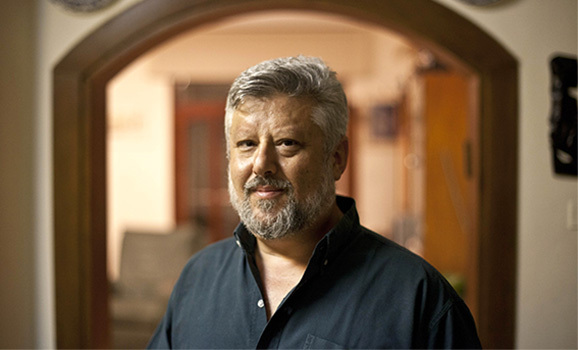UPDATES
More evidence concerning Hamas’ supposed moderation
October 17, 2013 | Sharyn Mittelman

It has become almost conventional wisdom among some commentators that Hamas has moderated its traditional rejectionist stance and is now prepared to embrace a two-state solution – if only Israel will listen.
For example, in March, Fairfax senior journalist Paul McGeough interviewed Hamas leader Khaled Meshal and wrote, “Hamas’ embrace of a two-state solution is qualified, but it implicitly recognises Israel and it shrinks the movement’s ‘river to the sea’ territorial claims to the West Bank and Gaza…” This was despite Meshal stating in the interview, “This is why I say publicly … that I reject the [West’s] conditions – we will not recognise Israel. We will not renounce violence. We will not agree to all previous agreements entered into by the PLO.”
Here’s yet more proof that those who insist that, “if you would just listen carefully, Hamas is telling you that they are prepared to coexist with Israel and make peace”, are in fact listening to their own hopes and wishes more than anything actually emanating from Hamas’ leaders.
In a fascinating and candid interview, Gershon Baskin, veteran Israeli peace activist and founder of the Israeli Palestinian Centre for Research and Information, recounts his conversation with Ghazi Hamad, Hamas’ deputy foreign minister.
Baskin and Hamad have an interesting relationship. From June 2006 to October 2011, Baskin and Hamad conducted secret back-channel negotiations for the prisoner exchange deal that released Israeli soldier Gilad Shalit for 1,027 Palestinian prisoners. Following Shalit’s release, they continue to talk to find a way of bringing about a long-term ceasefire between Hamas and Israel.
However, even Baskin admits, “We have conducted hundreds of hours of discussions over these years. I am often asked, ‘Is there anyone to talk to in Hamas?’ Hamad is thought to be one of the most pragmatic leaders in Hamas yet even he cannot accept the idea of recognizing Israel and making peace.”
Baskin recounts his conversation with Hamad on this issue:
“Gershon: Is Hamas interested in the two-state solution?
Ghazi: No.
Gershon: OK, so maybe there’s no partner on both sides?
Ghazi: We have no problem to establish our state on the ’67 borders but not to recognize Israel.
Gershon: But that’s not peace.
Ghazi: It’s mine, this land is mine; you should give it to me. You should not ask me to give you something in exchange. My land was stolen. I don’t have to give anything in return to get my land back. According to international resolutions, according to the UN Security Council, this is Palestinian territory.
Gershon: Ghazi, in all honesty, it seems to me that Hamas is in real crisis now. You have lost the support of your friends and allies. The Muslim Brotherhood in Egypt is gone. Qatar is not so friendly anymore. Maybe it is time for Hamas to re-evaluate its entire position and come to new conclusions. Haven’t the Palestinian people suffered long enough?
Ghazi: We will not surrender our rights. We will continue to struggle as long as it takes.”
Ghazi provides no wiggle room for creative re-intepretation of the sort advocates for dialogue with Hamas sometimes employ.
Overall, the interview flies in the face of commentators like McGeough who argue that Hamas is willing to recognise Israel and reach a pragmatic peace. Moreover, the people documenting this reality are Baskin, one of Israel’s best-known advocates of dialogue with Hamas and Ghazi, a Hamas leader recognised as one of the terror group’s most pragmatic.
If we want to understand Hamas, perhaps it’s time to listen to what Hamas leaders are actually saying.
Sharyn Mittelman
Tags: Israel





